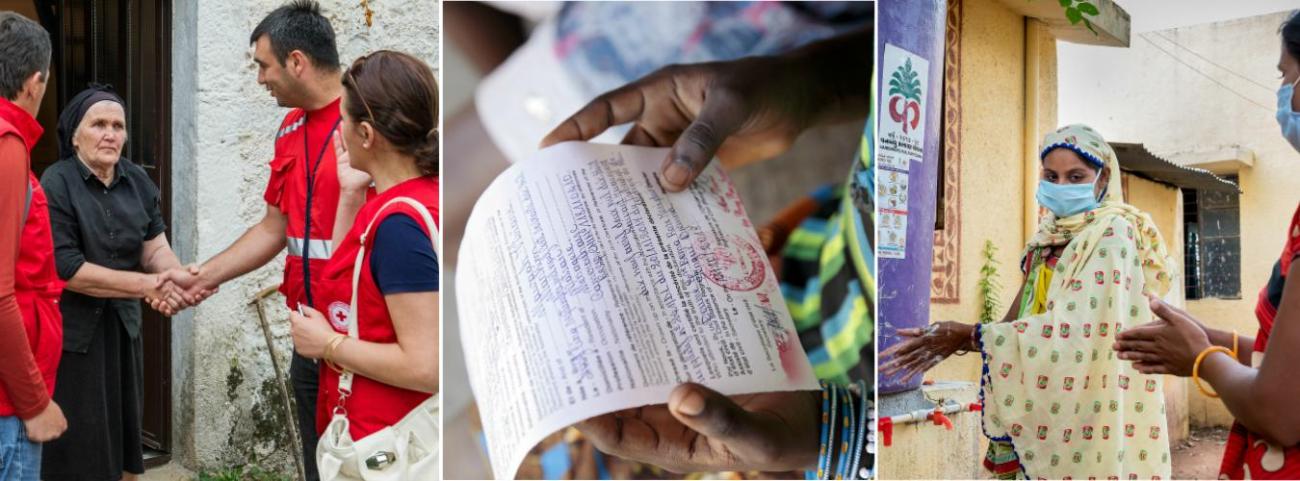"As we mark this important day, let us celebrate not only the work of public servants worldwide, but their commitment to working in partnership to build a better future for all people."
Building back better from COVID-19
Enhancing innovative partnerships to meet the Sustainable Development Goal
Taking its lead from the 2022 theme of the United Nations High-level Political Forum (HLPF), the main body for reviewing implementation of the 2030 Sustainable Development Agenda, the 2022 UN Public Service Day commemoration, celebrated this year on 22 June, will focus on the role of public institutions and public servants in building back better from COVID-19 as they work to meet the 2030 deadline for implementing the Sustainable Development Goals.
In particular, the event will focus on one of the Goals that will be reviewed at the 2022 HLPF: Goal 17 - Partnerships for the Goals, which works to 'Strengthen the means of implementation and revitalize the global partnership for sustainable development'.
During the UN Public Service Day event, stakeholders will gather to discuss the role that various forms of partnerships can and should play in building back better from COVID-19 and in meeting the SDGs. It will do so through the lens of SDG 16 (peace, justice and strong institutions), and in particular target 16.6 - enhancing the effectiveness, transparency, accountability of public institutions. The event will place a focus on the role of innovation in creating and sustaining partnerships for effective public service delivery.
Origin
On 20 December 2002, the General Assembly designated 23 June as Public Service Day by adopting resolution 57/277.
UN Public Service Day celebrates the value and virtue of public service to the community; highlights the contribution of public service in the development process; recognizes the work of public servants, and encourages young people to pursue careers in the public sector.
To bolster recognition of the Day and the value of public service, the United Nations established the UN Public Service Awards (UNPSA) programme in 2003, which was reviewed in 2016 to align with the 2030 Agenda for Sustainable Development. The UNPSA aims to promote and reward innovation and excellence in public services by recognizing the creative achievements and contributions of public institutions that lead to a more effective and responsive public administration in countries worldwide in support of sustainable development.
Each year UN DESA organizes the Forum with a host country, using the event to host capacity-development workshops, the UN Public Service Awards ceremony and a Ministerial Roundtable. Drawing together roughly 800 to 1,000 participants, the Forum is a space for world leaders, Ministers, and other senior decision-makers to debate emerging issues and trends, discuss good practices, strategies, accelerated actions, and innovative approaches for effective service delivery and transforming institutions.
Public institutions for the Sustainable Development Goals
Effective, accountable and inclusive institutions are essential to achieving the Sustainable Development Goals (SDGs). This is recognized by SDG 16 and the 2030 Agenda for Sustainable Development. The Agenda also recognized that governments have the primary responsibility for implementing the SDGs and ensuring follow-up and review over the coming 15 years, at the national, regional and global levels. One of the first steps governments take to implement the Agenda is often to shape the institutional arrangements for steering the implementation of the SDGs and reviewing progress.
Public administration - the cornerstone of governments' work- plays an essential and critical role in improving people’s lives. Reinventing public administration is a positive and necessary way forward. Without public administration modernization and transformation to adapt to today’s needs, realizing a better future for all will be impossible. Where capable administrations are lacking, governments are incapacitated; and where governments are incapacitated, sustainable development falls short.



